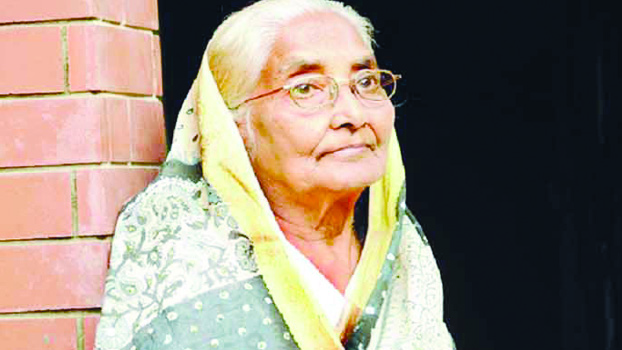Posthumous Ekushey Padak for Rawshan Ara Bachchu demanded

Bangladesh National Awami Party (Bangladesh NAP) has demanded posthumous ‘Ekushey Padak’ for language veteran Rawshan Ara Bachchu for her outstating contribution in the Language Movement.
The party made the demand at a memorial meeting and doa mahfil on the langue hero who died on December 3. The memorial meeting was held at Jadu Mia auditorium at Nayapaltan in the capital on Monday (December 9). Secretary General of Bangladesh NAP M Golam Mostafa Bhuiyan presided over the meeting, while the party’s Dhaka city unit President Md Shahidunnabi Dablu conducted the programme. It was attended, among others, by President of Jatiya Gonotantrik League MA Jalil, NDP Secretary General Md Manzur Hossain Isa, General Secretary of Sonar Bangla Party Syed Harun-or-Rashid, Awami League leader ASM Mostafa Kamal, NAP Vice Chairman Swapan Kumar Saha, Joint Secretary General Ehsanul Haque Jasim, Organising Secretary Md Kamal Bhuiyan, central leader Eklasul Haque, Dhaka city unit leader Habibur Rahman and Mizanur Rahman.
In his presidential speech, M Golam Mostafa Bhuiyan said that Rawshan Ara Bachchu is a proud figure of the country. She played a vital role in the Language Movement of 1952. But she was not honoured properly in her life. It was unexpected, he added.
“Although the Ekushey Padak was introduced in memory of the martyrs of the Bengali Language Movement of 1952, language veteran Rawshan Ara Bachchu has been deprived of the award. The authorities concerned should take initiative to provide posthumous Ekushey Padak for the langue hero,” said the NAP Secretary General.
Rawshan Ara Bachchu died in Dhaka at the age of 87. Born at Uchlapara village under Kulaura upazila in Moulvibazar district on December 17 in 1932, she joined the politics of Democratic Progressive Front after her admission to Dhaka University. She was one of the pioneers who wanted to hold a peaceful procession defying a ban on rallies on February 21 in 1952.


